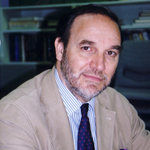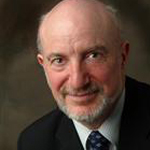From the Editors


Will CANTOS and REVEAL change how we view the clinical use of PCSK9 inhibitors?
Prof Anthony Wierzbicki, New Associate Editor of PCSK9 Forum discusses Atherosclerosis has long been recognised as a chronic inflammatory disease, where low-density lipoproteins (LDL) interact with both innate and adaptive immunity mechanisms. However, while inflammatory infiltration by circulating white blood cells is an important part…
read more »
NLA 2017 recommendations: Who should benefit from PCSK9 inhibition?
Dr Peter Lansberg, PCSK9 Forum News Editor discusses these latest recommendations from the US National Lipid Association. The National Lipid Association has recently published updated guidance for the use of PCSK9 inhibitors (1). This statement has courted controversy with recommendations for using these efficacious agents…
read more »

VIDEO: Implications of very low LDL cholesterol levels
One of the key concerns of clinicians in the aftermath of FOURIER is the safety of very low LDL cholesterol levels. This is underlined by the fact that 42% of patients on evolocumab in FOURIER attained LDL cholesterol levels ≤25 mg/dl (0.65 mmol/L).(1) As previously…
read more »

FOURIER in the Hot Seat: What are the Implications for practice and access?
FOURIER was a landmark trial for PCSK9 inhibition, showing significant reduction in cardiovascular events with evolocumab in very high risk patients on maximally tolerated lipid lowering therapy. The results from FOURIER, together with those from SPIRE-2 in patients at higher baseline LDL cholesterol levels, clearly…
read more »

Countdown to FOURIER: What are the implications for patients?
Countdown to FOURIER: What are the implications for patients? PCSK9 Forum Editor Professor Anthony Wierzbicki gives his view.
read more »
Countdown to FOURIER: Are very low levels of LDL cholesterol safe?
A view from PCSK9 Forum Editor Dr Peter Lansberg (Academic Medical Center, Amsterdam, the Netherlands) Comment relates to: Giugliano RP, Wiviott SD, Blazing MA et al. Long-term Safety and Efficacy of Achieving Very Low Levels of Low-Density Lipoprotein Cholesterol A Prespecified Analysis of the IMPROVE-IT…
read more »

Looking to FOURIER: What do the trials tell us about LDL lowering and cardiovascular events?
Presentation of full results from the FOURIER cardiovascular outcomes trial with the PCSK9 monoclonal antibody evolocumab is imminent. Here, PCSK9 Forum Editor Professor Anthony Wierzbicki (Guy’s and St Thomas’ NHS Foundation Trust, London UK) looks back over more than 25 years of trials of LDL…
read more »
TAUSSIG: What does it mean for the homozygous FH patient?
Data from TAUSSIG (Trial Assessing Long-Term Use of PCSK9 Inhibition in Subjects with Genetic LDL Disorders), the largest and longest study of lipid lowering therapy in patients with homozygous FH, indicate a complementary role for evolocumab with lipoprotein apheresis. PCSK9 Forum Editor Dr Peter Lansberg…
read more »

Looking back at 2016: What made the news?
PCSK9 Forum Editor Professor John Chapman reviews the ups and downs of LDL lowering news in 2016. The Highlights GLAGOV (Global Assessment of Plaque Regression with a PCSK9 Antibody as Measured by Intravascular Ultrasound) (1) would have to feature very much in the forefront of…
read more »
Use of PCSK9 inhibitors in developing countries
Inhibitors of proprotein convertase subtilisin/kexin type-9 (PCSK9) reduce the concentration of low density lipoprotein cholesterol (LDL-C) by up to 60%, whether given as the only lipid lowering therapy or when used in people already being treated with lipid-lowering agents. The availability of PCSK9 inhibitors thus…
read more »
Premium quality or just over-priced? How affordable are the PCSK9 monoclonal antibodies?
Anthony Wierzbicki, Guy’s & St Thomas’ Hospitals, London discusses recent economic analyses from the US and UK. Cardiovascular disease (CVD) remains one of the commonest causes of morbidity and mortality in the world. The epidemiology of CVD is changing as rates of smoking decrease but…
read more »
Screening for Lipid Disorders in Children and Adolescents: A view from PCSK9 Forum Editors
Gerald F Watts, University of Western Australia, Perth, Australia Heterozygous familial hypercholesterolaemia (FH, inherited high cholesterol) starts as an asymptomatic disorder characterized by markedly elevated LDL cholesterol levels and untreated leads to accelerated atherosclerosis and cardiovascular disease. Typically, individuals may be only diagnosed in the…
read more »
PCSK9 inhibitors in Acute Coronary Syndromes
Baris Gencer, Cardiology Division, Geneva University Hospitals, Switzerland While the prognosis of acute coronary syndromes (ACS) has considerably improved over the last few years with the implementation of recommended therapies, a high risk of recurrent adverse events persists.1 The evidence for the efficacy of statins…
read more »
Why do we need a definition for severe forms of familial hypercholesterolemia?
Raul D. Santos MD, PhD on behalf of the International Atherosclerosis Society Panel on Severe Familial Hypercholesterolemia, discusses why this is critical to the best current use of PCSK9 inhibitors in clinical practice. Familial hypercholesterolemia (FH, inherited high cholesterol) is common in individuals who suffer…
read more »
How do PCSK9-inhibitors reduce lipoprotein(a)?
Beyond lowering LDL cholesterol, PCSK9 inhibition also reduces lipoprotein(a). Prof Derick Raal, University of the Witwatersrand, Johannesburg, South Africa discusses the underlying mechanism. Lipoprotein (a) [Lp(a)] is an LDL-like particle consisting of apolipoprotein(a) [apo(a)] that is disulphide-linked to the apoB moiety of LDL (1). Lp(a)…
read more »
PCSK9 therapy- the solution to all cardiovascular disease?
Prof. Anthony S Wierzbicki, Department of Metabolic Medicine/Chemical Pathology, Guy’s & St Thomas’ Hospitals, London, UK discusses evidence from a number of meta-analyses of PCSK9 inhibitor treatment. Cardiovascular disease (CVD) has multiple manifestations in different vascular beds and is driven by multiple CVD risk factors….
read more »
FH and PCSK9: Perspective from Japan
Evolocumab recently received approval in Japan for the treatment of patients with familial hypercholesterolemia (FH, inherited high cholesterol) or hypercholesterolaemia who are at high risk of cardiovascular events and do not adequately respond to statins. Here, Professor Harada-Shiba, Osaka, Japan discusses the importance of this…
read more »
The year in cardiology 2015: prevention
PCSK9 Forum Editors, Profs John Chapman, Ulf Landmesser and co-authors discuss the highlights of 2015 in The European Heart Journal.
read more »
PCSK9 inhibitors, legacy effects and long-term benefits
Prof Chris J Packard, College of Medical, Veterinary and Life Sciences, University of Glasgow, discusses the potential of profound LDL lowering to alter the natural history of atherosclerotic disease Genetic, epidemiological, clinical trial and pathological data come together to focus intervention strategies on LDL as…
read more »
From the Editors: PCSK9 inhibitors and cardiovascular disease: heralding a new therapeutic era
PCSK9 Forum Editors overview recent developments in PCSK9 science and therapeutics, culminating in regulatory approval of the first two PCSK9 monoclonal antibodies earlier this year. While access to this novel LDL lowering treatment will undoubtedly be influenced by local cost constraints, the editors highlight severe…
read more »







